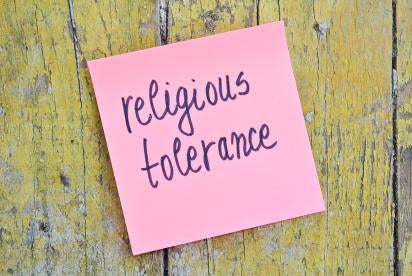We reported following the 2017 UN Forum on Business and Human Rights on the progress of an international treaty on the subject. On 19th July 2018, the Open-ended Intergovernmental Working Group (OEIGWG) presented the draft text of a treaty to the High Commissioner for Human Rights (through the Permanent Mission of Ecuador, acting as Chair in the process).
The draft has been crafted pursuant to Human Rights Council Resolution 26/9under which the OEIGWG was given the mandate to “elaborate an international legally binding instrument to regulate, in international human rights law, the activities of transnational corporations and other business enterprises.”
The text will serve as the basis for negotiations in the fourth session of the OEIGWG in October 2018.
Key Elements of the “Zero” Draft (16.7.2018)
Previous discussions of the OEIGWG contemplated the possibility of any eventual treaty creating direct international legal obligations for businesses. However, as it stands, the draft would only impose obligations on state parties to take legislative and other measures to ensure business accountability and access to remedy for victims.
As drafted, the treaty would require state parties to:
- Guarantee the rights of victims of human rights violations – in the context of business activities with a transnational nature – to access to justice and remedies, including restitution, compensation, rehabilitation and guarantees of non-repetition. States would be required to provide effective mechanisms for enforcement of remedies against any offending persons (including businesses), including foreign judgments and would establish an “International Fund for Victims” to provide legal and financial aid to victims (Article 8).
- Ensure that domestic legislation imposes human rights due diligence obligations on persons with business activities of transnational character within a state party’s territory or otherwise under their jurisdiction or control. Proposed due diligence measures include requirements for businesses to:
- monitor human rights impacts of their business activities, including the activities of subsidiaries and entities under a business’ control or linked to its operations, produces and services;
- prevent human rights violations within the context of business activities;
- publically and periodically report on non-financial matters, including environmental and human rights matters;
- conduct human rights impact assessments; and
- reflect due diligence requirements in all contractual relationships involving business activities of transnational character.
State parties would be given the option to exempt certain small and medium-sized undertakings from the scope of such obligations (Article 9).
- Ensure liability for violations of human rights undertaken in the context of business activities of transnational character with effective, proportionate and dissuasive criminal and non-criminal sanctions, including monetary sanctions. Legislation should impose liability for harm caused by operations to the extent a relevant business exercises control over the operations, exhibits sufficiently close relations with its subsidiary or foresaw or should have foreseen risks of human rights violations within its chain of economic activity (Article 10).
The draft also covers certain key matters relating to the operation and enforcement of treaty obligations, including:
- The concept of mutual legal assistance: state parties would be required to assist other state parties in initiating and carrying out investigations, prosecutions and judicial proceedings in relation to cases covered by the treaty (e.g. by facilitating the seizure of assets) (Article 11).
- Obligations on states to submit periodical reports on measures taken to a Committee of experts.
Criticism
Early criticism of the draft includes concerns that:
- States would only be obliged to legislate with respect to natural and legal persons (including businesses) in the context of “business activities of a transnational character”, appearing to exclude domestic companies. This conflicts with the notion set out in the preamble of the draft treaty and recognised under the non-binding UN Guiding Principles on Business and Human Rights that “all business enterprises, regardless of their size, sector, operational context, ownership and structure shall respect all human rights, including by avoiding causing or contributing to adverse human rights impacts through their own activities and addressing such impacts when they occur”. Conceptually, it appears strange that domestic companies should not be required to comply with the same human rights standards as transnational businesses.
- There is a lack of clarity surrounding what rights will be covered under the treaty. The draft refers to “all international human rights” and those recognised by domestic law. It has been argued that this should be defined more clearly, for example by reference to particular treaties (see here).
- Draft Article 10 attempts to define the boundaries of civil liability broadly. States are required to ensure civil liability where harm has been caused by human rights violations including where a business exhibits a “sufficiently close relation with its subsidiary or entity in its supply chain” or “to the extent risk should have been foreseen” within its supply chain. This may well be a hotly contested issue in further negotiations (as discussed here), particularly in light of recent and ongoing case law in jurisdictions including the U.K. and Canada on the subject of parent company liability for alleged human rights violations by subsidiaries or connected businesses.
What Does this Draft Mean for Business?
Treaties can take years to negotiate and there are several key areas where further clarification and discussion is arguably required before the zero draft progresses. Furthermore, certain states (including the U.S.) continue to boycott the negotiating process and it is unclear at this stage how much state support the treaty will garner and how many states would eventually ratify the treaty and take measures to comply.
However, what is clear from the draft is that such a treaty could impact many businesses operating transnationally. Pursuant to treaty obligations, signatory states may enact and enforce legislation (i) requiring companies to conduct human rights due diligence; and (ii) providing legal recourse (civil, criminal or administrative) to victims who allegedly suffer negative impacts to their human rights as a result of such business activities.
Independently from the treaty process, states continue to enact or consider domestic legislation imposing human rights due diligence obligations on corporates (see our recent alert here). Companies are advised to track such legislation and consider the robustness of their human rights due diligence policies and procedures.






 i
i


